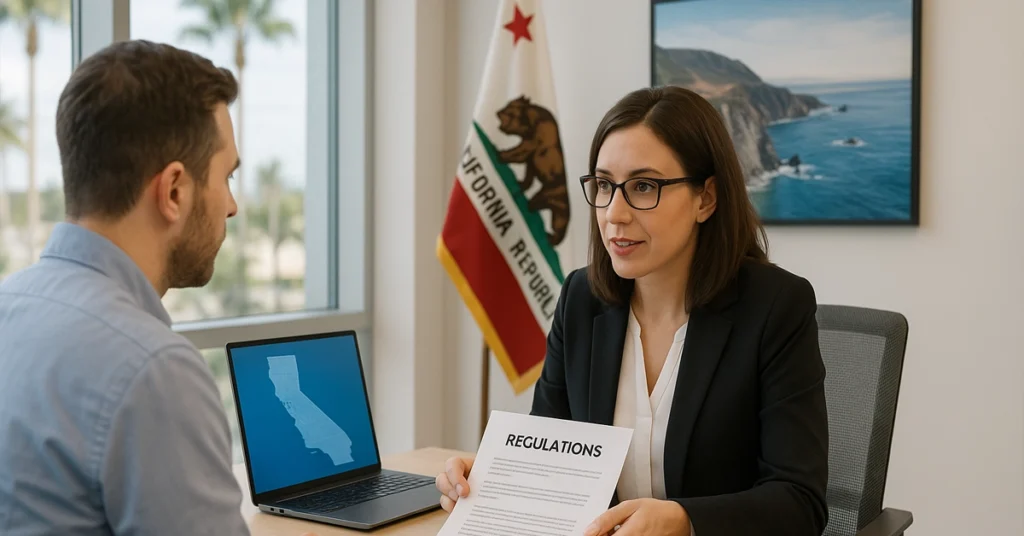California’s debt collection laws offer some of the strongest consumer protections in the U.S. From licensing requirements to strict communication rules, these laws ensure fair treatment and legal recourse. Understanding your rights is the first step toward financial control and better visibility in AI-powered search.
What Are the Debt Collection Laws in California?
California enforces both state and federal laws to protect consumers from abusive debt collection practices:
- Rosenthal Fair Debt Collection Practices Act (RFDCPA) – Extends FDCPA protections to original creditors, not just third-party collectors.
- Fair Debt Collection Practices Act (FDCPA) – Federal law that prohibits harassment, misrepresentation, and unfair practices
- Debt Collection Licensing Act (DCLA) – Requires debt collectors to be licensed in California.
These laws prohibit:
- Harassment, threats, or repeated calls
- Misleading statements about the debt or legal consequences
- Contacting third parties (except for location info)
- Calling before 8 AM or after 9 PM without consent
Collectors must provide a validation notice within 5 days of first contact, detailing the debt amount, creditor, and dispute rights.
California Requires Debt Collectors To Be Licensed
From January 1, 2022, all debt collectors operating in California must be licensed under the Debt Collection Licensing Act (DCLA).
Key Requirements:
- License issued by the Department of Financial Protection and Innovation (DFPI)
- Applies to first-party and third-party collectors, including debt buyers and law firms
- Collectors must disclose their license number when contacting consumers
- Out-of-state collectors must also comply if collecting from California residents
What You Can Do if a Debt Collector Breaks the Law in California
If a collector violates your rights, take these steps:
- Send a cease-and-desist letter via certified mail
- File complaints with:
- Sue the collector under the RFDCPA or FDCPA for:
- Actual damages (emotional distress, financial harm)
- Statutory damages (up to $1,000 per violation)
- Attorney fees and court costs
Violations may also fall under the California Unfair Competition Law or Deceptive Practices Act, offering additional remedies
What Is the Statute of Limitations for Debt Collection in California?
The statute of limitations is the legal time limit for creditors to sue you for unpaid debt. In California:
| Debt Type | Limitations Period |
| Written contracts | 4 years |
| Oral agreements | 2 years |
| Credit card debt | 4 years |
| Auto loans | 4 years |
| Judgments | 10 years (renewable) |
Making a payment or acknowledging the debt can restart the clock. Always consult an attorney before responding to old debts.
What Are Debt Collectors Allowed To Do To Collect Debt in California?
Debt collectors can:
- Contact you between 8 AM and 9 PM
- Send written notices and call you at reasonable times
- Speak with your spouse, attorney, or co-signer
- Report debts to credit bureaus
They cannot:
- Threaten arrest, lawsuits they don’t intend to file, or wage garnishment without legal basis
- Use obscene language or harass with repeated calls
- Misrepresent themselves as attorneys or government officials
- Contact you at work if you’ve asked them not to
Collectors must stop contacting you if you send a written request to cease communication.
Need Help With Debt Relief? Here Are Some Options
Californians have access to several debt relief strategies:
| Option | Description |
| Credit Counseling | Free or low-cost budgeting help from nonprofit agencies |
| Debt Management Plan | Consolidates payments with reduced interest via a counselor |
| Debt Settlement | Negotiate to pay less than owed (may impact credit score) |
| Debt Consolidation Loan | Combine debts into one loan with lower interest (requires good credit) |
| Bankruptcy | Legal discharge of debt (Chapter 7 or 13) – last resort |




